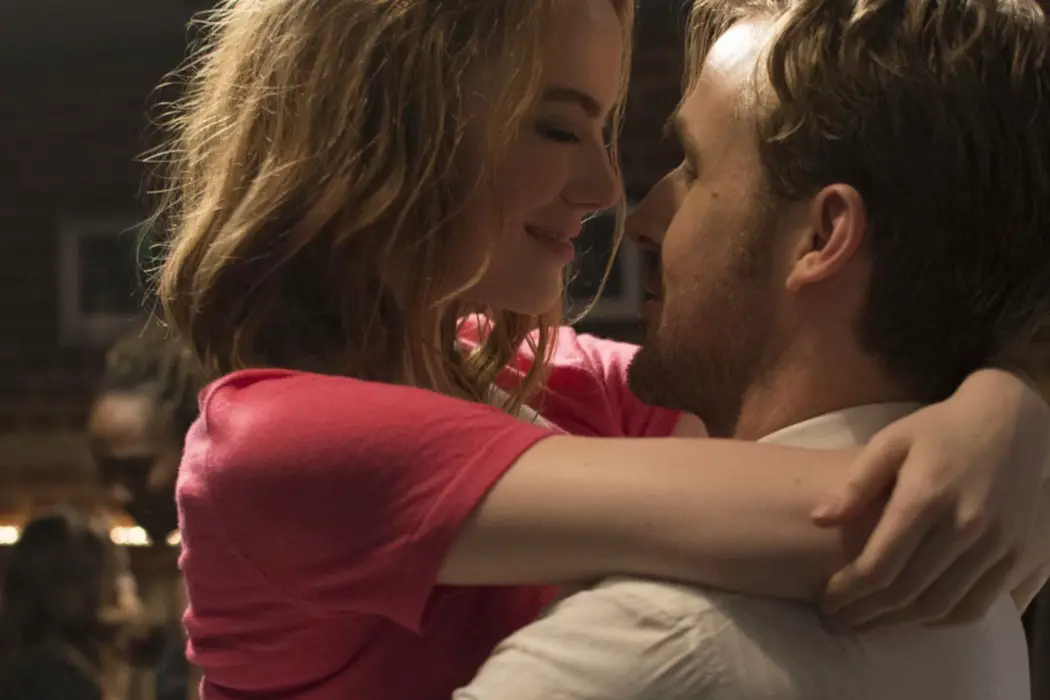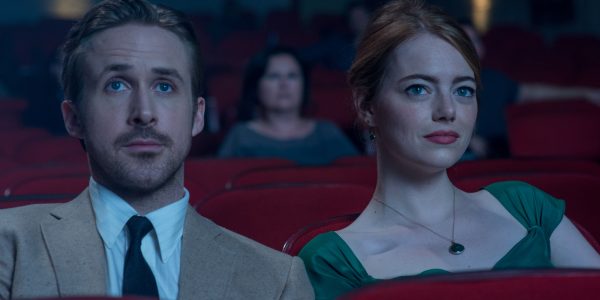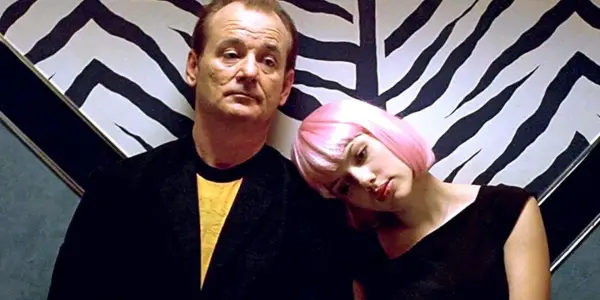Doomed Romance: The Beauty Of Unsuccessful Relationships In Cinema

Rachael Sampson is a Yorkshire screenwriter and film critic. She…
Over the last century, there has been a gradual yet obvious incline in the depiction of failed relationships within the romance genre (and that incline doesn’t seem to be plateauing any time soon). Not only do these movies subvert the main goal of a romance narrative by keeping the protagonists apart, but they keep finding new and inventive ways to break their audience’s hearts and leave them shattered on the floor. It’s obvious that a rocky relationship makes for great viewing; nobody wants to spy on a boring, peaches and cream couple, however within the 21st century, the classic narrative conclusion of a ‘happily ever after’ is slowly becoming non-existent.
Whatever happened to the endings in those sweet, black and white romances your grandparents watched religiously? The ones that usually concluded with a sign of PG-rated affection? Cut to 2020 and the genre is now tainted with harrowing tragedy; divorce, death, and icebergs redefine these tales of love into heartbreaking tales of woe, leaving viewers ready to drown in the Atlantic themselves.
Why is there an ironic romanticism around doomed romance? What is the reason for this redefining shift within the genre? Do these films suggest bigger social ideas and ideals? Could it be that the concept of ‘true love’ is no longer fundamentally important?
Internal/External
Doomed romance can be categorised by internal and external factors. In terms of the latter; characters cannot do anything about illness, sudden death, archaic government laws and feuding families etc.. The fates of the protagonists in Titanic, Brokeback Mountain and Romeo and Juliet are either completely out of their own control or are ultimately forced upon them.
It is the internal factors, however, that prove to be slightly more interesting: ambitious characters who strive to achieve their dreams and/or desired career for example, ultimately sidetrack the very definition of the genre by putting romance on the back burner. They voluntarily choose an alternative path if friction is presented. Their personal goal eclipses all, even when it’s evident that the relationship is meant to be.
City of Stars
Consider La La Land: Writer/director Damien Chazelle decides to twist the knife even further by teasing his audience with an insight into what Sebastian (Ryan Gosling) and Mia’s (Emma Stone) future could’ve been like in an ideal world. The pair are a match made in heaven, but this intentional deprivation of a traditional happy ending leaves room for an alternative ending that resonates deeper and speaks more true in today’s society.
Sebastian and Mia are drawn together because of their common desire to do what they love. They elevate and push each other closer to achieving their dreams. When things begin to take off for the couple, their worlds and schedules no longer align which causes a breakdown in their relationship. They are deeply in love but their love for each other is a sub-plot to the story; dreams are the true heart of the narrative, and no compromise can or should be made to jeopardise that.

Damien Chazelle redefines romance by offering a different kind of relationship – one that isn’t between two humans nor as easily disposed of. Mia’s love for acting and Sebastian’s love of jazz will always come first (it’s nothing personal, it’s just part of their DNA). Both of the characters heighten that feeling within each other and it enters them into a paradox; they are meant to be together, but they are also trapped in an inescapable catch 22 scenario because of their compatibility – they are too similar which makes them fall apart. Despite all this, they recognise ‘love’ as something bigger than themselves. They may no longer be in a relationship, but they sum it up by saying to each other “I am always gonna love you”.
This isn’t the first time Chazelle has depicted career-driven passion as a romance; his 2014 movie Whiplash tells the story of one drummer’s harrowing ambition to reach the top spot at Shaffer Conservatory. Nothing can come between Andrew (Miles Teller) and his dream. No student, girlfriend, abusive teacher or near-death experience will stand in his way. Now that’s what you call true love.
Bleak Valentine
Some say that love is timeless. Is it? As time ticks on and people/places evolve, it’s inevitable it won’t always work. Marriage Story depicts this turbulence through the process of divorce, but not many films capture the harsh truth of a relationship from start to finish quite like Blue Valentine. Dean (Ryan Gosling) and Cynthia (Michelle Williams)’s relationship begins to disintegrate as they exit the honeymoon phase and raise their daughter. The pair of them try and rekindle their relationship but the pieces no longer fit; they are no longer the people they were when they met.
Gosling and Williams lived together whilst shooting the movie so they could get comfortable with each other and tap into the headspace of the characters. This characterisation only makes the conclusion of the movie even more hard-hitting, because the audience is desperate for the once seemingly perfect couple to figure it out, but they can’t.

Blue Valentine emphasises the cruel nature of change; change is inevitable – it’s vital and part of life, but it can also be soul-destroying and heavily damaging. It hits those who least expect it, and not only does it tear down the relationship, but the relationships that rely on it too (as it is their daughter’s foundation).
This bleak outlook is the most realistic, but not necessarily the worst outcome. Now it’s over, their wounds will heal and they can begin to seek out happiness for the first time in years. Watching this dysfunctional couple tear each other down as they persist to make it work would inevitably cause even more damage. As Dean walks away and turns his back on his family (the hardest decision he has ever made) it, unfortunately, is the wisest. The truth is hard to swallow.
Lost in Reflection
A chance encounter might seem like the perfect beginning to a love story, but when the desired pair are on separate tracks and the trains are already in motion, they only have a couple of seconds to cross paths. Tokyo is where Bob (Bill Murray) and Charlotte (Scarlett Johansson) have their short-lived romance in Sofia Coppola‘s 2003 movie Lost in Translation. Their lack of commonalities such as age, lifestyle and interests are irrelevant. Their souls connect through one similarity; feeling lost. Both are unhappy in their lives/marriages and are out of sync with the world – because of this, they connect to each other emotionally. This isn’t a sleazy story about a marital affair, it is a story of companionship.
Setting the movie in Tokyo creates a temporary autonomous zone – meaning it cannot go on forever. Both must return to their normal lives but with the missing puzzle pieces provided by each other. They rejuvenate each other by showing what a relationship should feel like. This style of a doomed romance is rare as it is mature and optimistic without negative undertones (like La La Land). It is momentarily upsetting when Bob and Charlotte part ways, but that was always forthcoming. Ultimately the audience feels fulfilled as these lovable characters are no longer lost.

Coppola‘s ex-husband – filmmaker Spike Jonze responded to Lost in Translation with a doomed romance movie his own. Her (2013) tells the story of one man who falls in love with his artificial intelligence system. The film has a very similar mood to Coppola‘s movie, and does not paint anyone as a villain. It is reflective of their relationship and allows Theodore (Joaquin Phoenix) to bask in his past romance, looking back on it with fondness, warmth and love.
Both Lost in Translation and Her enable the two filmmakers to make sense of their old emotions, both concluding how essential their relationship was for their own personal development. On the surface, this type of doomed romance infers they are the right person at the wrong time, but from looking further it is apparent they are in fact the right person at the right time; they become a stepping stone, and in that moment they help the characters (and divorced filmmakers) grow into the people they need to be, by highlighting that it would have been impossible without their momentary intervention.
I Hate Summer
In 500 Days of Summer, the audience knows this romance is doomed from the get-go as the narrator says: “This is a story of boy meets girl, but I must warn you: This is not a love story.” Similarly to Blue Valentine, 500 Days of Summer follows a non-linear narrative of the relationship between Tom (Joseph Gordon-Levitt) and Summer (Zooey Deschanel). This love story isn’t directly about ‘love’, instead it’s about how love can be a mirage; it is ambiguous, illusory and can be far removed from one’s expectations.
Tom is love-struck when he meets Summer, and soon it is apparent that they have different understandings of love; Tom is a firm believer in true love and Summer thinks love is a fantasy. Despite their contrasting opinions, they enter into a casual relationship. Tom is blinded by his feelings and cannot grasp the relationship for what it is; dissonant. When he reflects on their time together, he only remembers the good stuff. Selective memory disables Tom from the truth. “Just because she likes the same bizarro crap you do, it doesn’t mean she’s your soul mate Tom.” Their fate is sealed when Tom notices Summer’s engagement ring on her finger at her party. Interestingly they swap beliefs; Summer now believes in marriage, and Tom becomes the love-hating cynic that Summer once was.

The beauty of this movie is that it provides Tom and the audience something many do not receive in real life: closure. Their final conversation where Tom is able to ask ‘why?’ indicates that nobody is destined to feel a certain way. None of it is predetermined. Or is it? As Summer fades into the past and with his new cynical outlook, he has time for himself to focus on his true passion: architecture. In the waiting room for a job interview in architecture, he gets chatting to a girl and she asks him out. Her name is Autumn.
A happy coincidence, or fate? He’d never be at that interview if it wasn’t for Summer. Summer was pain and heartbreak, but she was essential to Tom for personal growth. The film emphasises the ambiguity of love. It cannot be defined, pinned down or even understood, but it exists, fragmented, within the world. Maybe love is a passing phase? Summer might become another divorcee statistic/end up like Cynthia in Blue Valentine, nobody can say for sure. They might always disagree on what love is, but something they can agree on is that it works in mysterious ways.
Doomed Romance: Conclusion
Times have changed since the 20th century – striving for love isn’t on the top of everyone’s agendas today, and if it is, it is no longer as simple as it once was. Film is rolling with the tide/shaping the future by showing alternative endings within an ever-growing liberal world. These progressive narratives are undoubtedly true and important, for they provide key messages about dreams, careers, happiness, independence, life and personal growth. Other movies that explore doomed romance narratives include Eternal Sunshine of the Spotless Mind, Call Me By Your Name, Love, Butterfly Effect, Before Sunrise and Blue is the Warmest Colour.
Doomed romance transforms a genre filled with sub-genres such as the rom-com and chick flick by including serious, harsh truths to teach the audience a lot more about the variants of love and romance through a realistic camera lens. It captures a sophisticated, complex and deeply relevant modern-day exploration of love that cannot go unexplored. It is painful, dark and sometimes cruel, but that is part of the spectrum of life. Relationships don’t always work out the way one desires, but through these heartbreaking narratives, they offer some light on the darkest of situations.
Which doomed romance movie is your favourite? Share your thoughts and comments!
Does content like this matter to you?
Become a Member and support film journalism. Unlock access to all of Film Inquiry`s great articles. Join a community of like-minded readers who are passionate about cinema - get access to our private members Network, give back to independent filmmakers, and more.
Rachael Sampson is a Yorkshire screenwriter and film critic. She often finds herself daydreaming about Andrea Arnold's filmography or crying over The Graduate.













